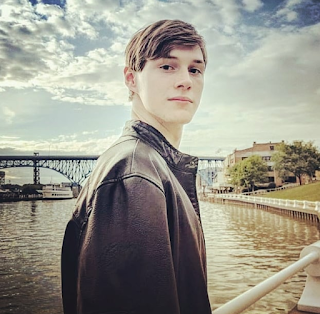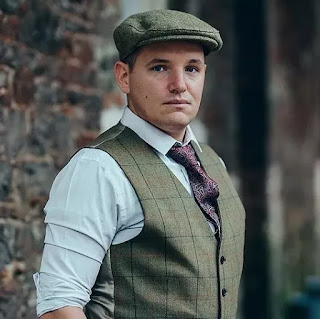 |
| Handel as a young man, c1710 (Handel-Haus, Halle) |
Handel Trio sonatas, chamber duets, Amarilli Vezzosa; Louise Alder, Christopher Lowrey, Peter Whelan & Ensemble Marsyas; Wigmore Hall
Reviewed by Robert Hugill on 29 May 2021 Star rating: (★★★★★)
An vividly engaging programme of early Handel from trio sonatas to Italian chamber duets
Ensemble Marsyas, director Peter Whelan, brought a lovely programme of Handel chamber music to the Wigmore Hall on Saturday 29 May 2021, with two trio sonatas, and a bassoon sonata, and were joined by soprano Louise Alder and counter-tenor Christopher Lowrey for two of the Italian chamber duets and the cantata, Amarilli Vezzosa (Il Duello Amoroso).
The programme was very much an exploration of early Handel and whilst dates for some of the works are a little vague, all but one of the pieces dated from 1712 or before, thus we are exploring music written by Handel in Hanover (the chamber duets), Italy (the cantata) and his early years in London. Of course, this is not precise as he was notorious for re-using material so the Hanover chamber duets were copied out in 1711 and may have been written earlier.
We began with the Sinfonia in B flat HWV 339 which may well date to Handel's years in Hamburg (1704-1706). This introduced us to the vividly engaging and energised playing of the ensemble, violins Sarah Sexton and Michael Gurevich, cello Sarah McMahon, and theorbo Sergio Bucheli directed from the harpsichord by Peter Whelan. The sinfonia was in three movements, fast slow fast, very Italianate in style and in both the fast and slow movements really enjoying the interplay of the two violins.
Next came the first of the chamber duets, Tanti strali al sen mi scocchi HWV 197, with Louise Alder and Christopher Lowrey accompanied by Whelan, McMahon and Bucheli. These duets were written for chamber performance, for Handel's talented aristocratic patrons to perform with the composer accompanying whether it be Italian aristocrats or the Princesses in Hanover. Handel wrote two batches of these duets, one in Italy and one in Hanover, and then surprisingly returned to the genre in London years later. HWV 197 was probably written in Hanover and like most of these duets features music reused later.




































